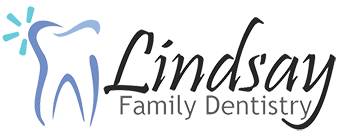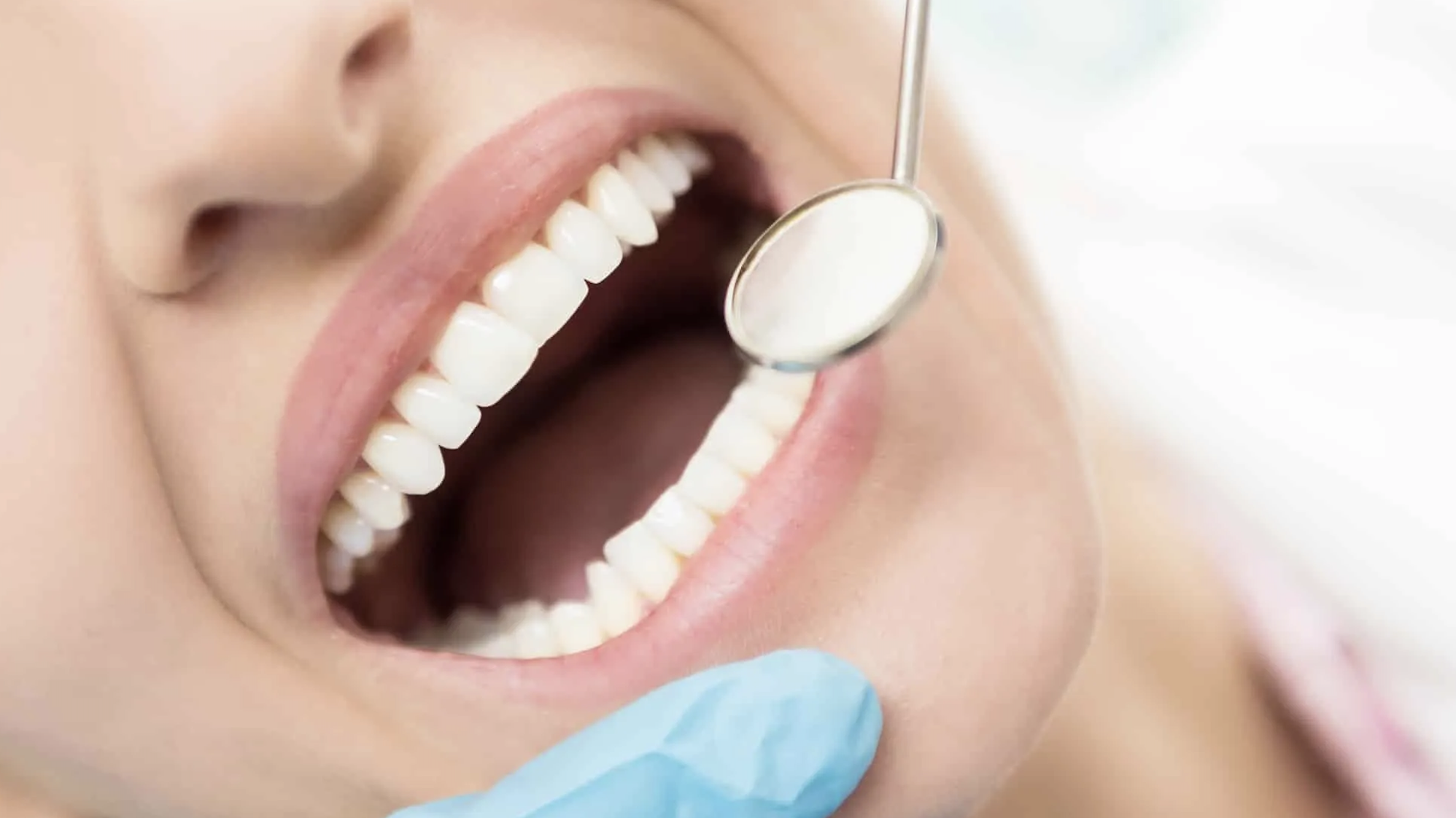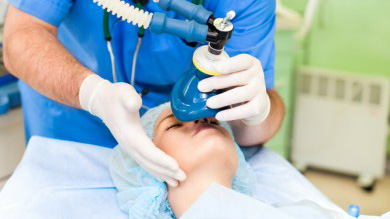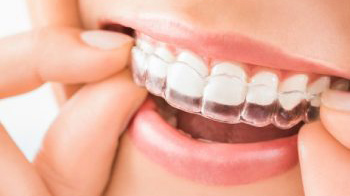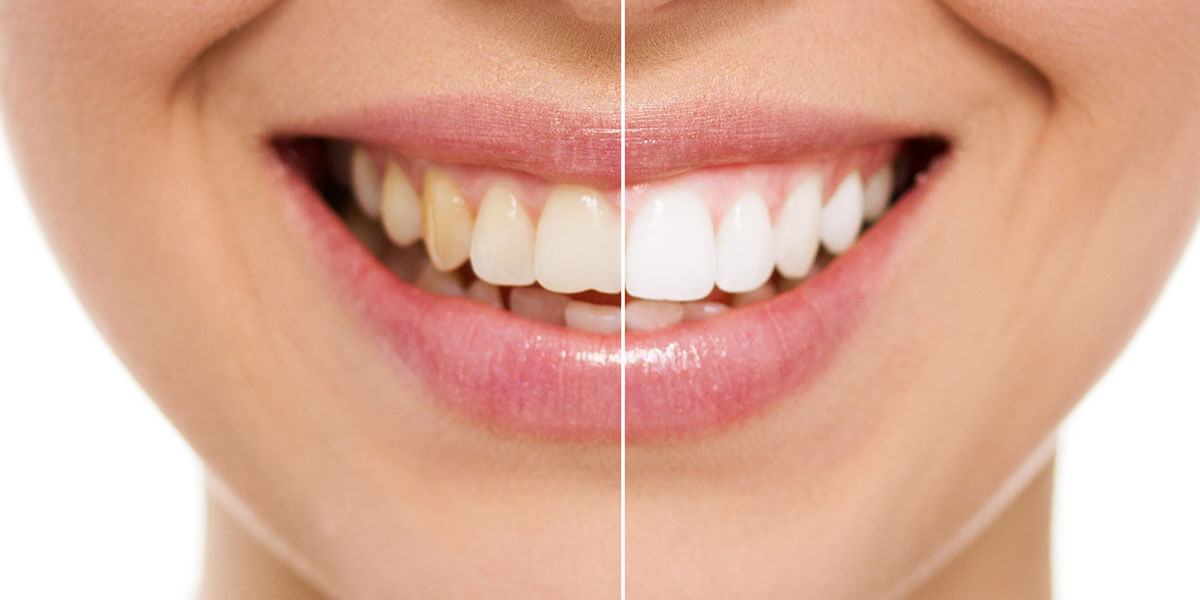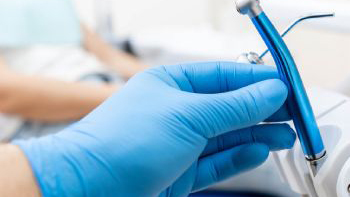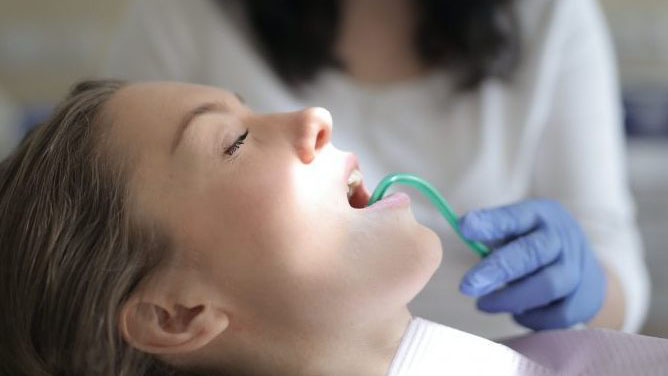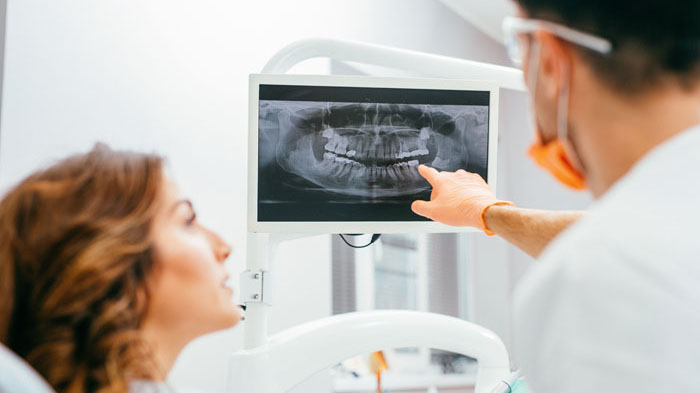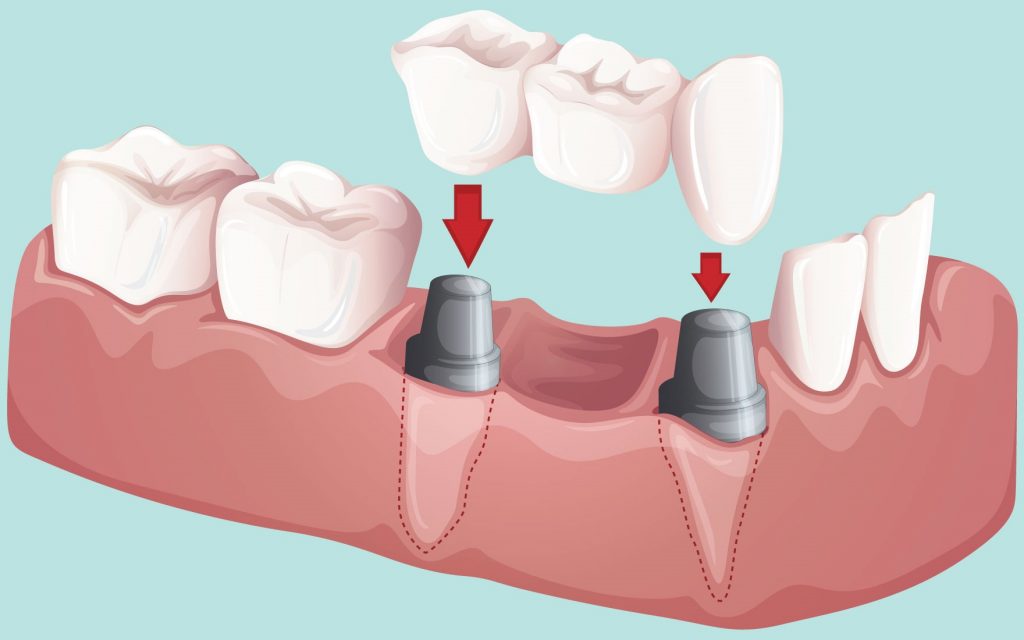Dental Services
We are a professional, caring team who care deeply about providing the best in oral hygiene for you and your family.
Family Dentistry
New Patients Welcomed!
Your first visit with our office as a New Patient gives us the opportunity to get to know you, what your concerns are in regards to your oral health, what you ideally want from your experience with us and how we can work together to achieve your oral health goals
We will collect information through a physical examination of your head, neck, jaws, throat and mouth.
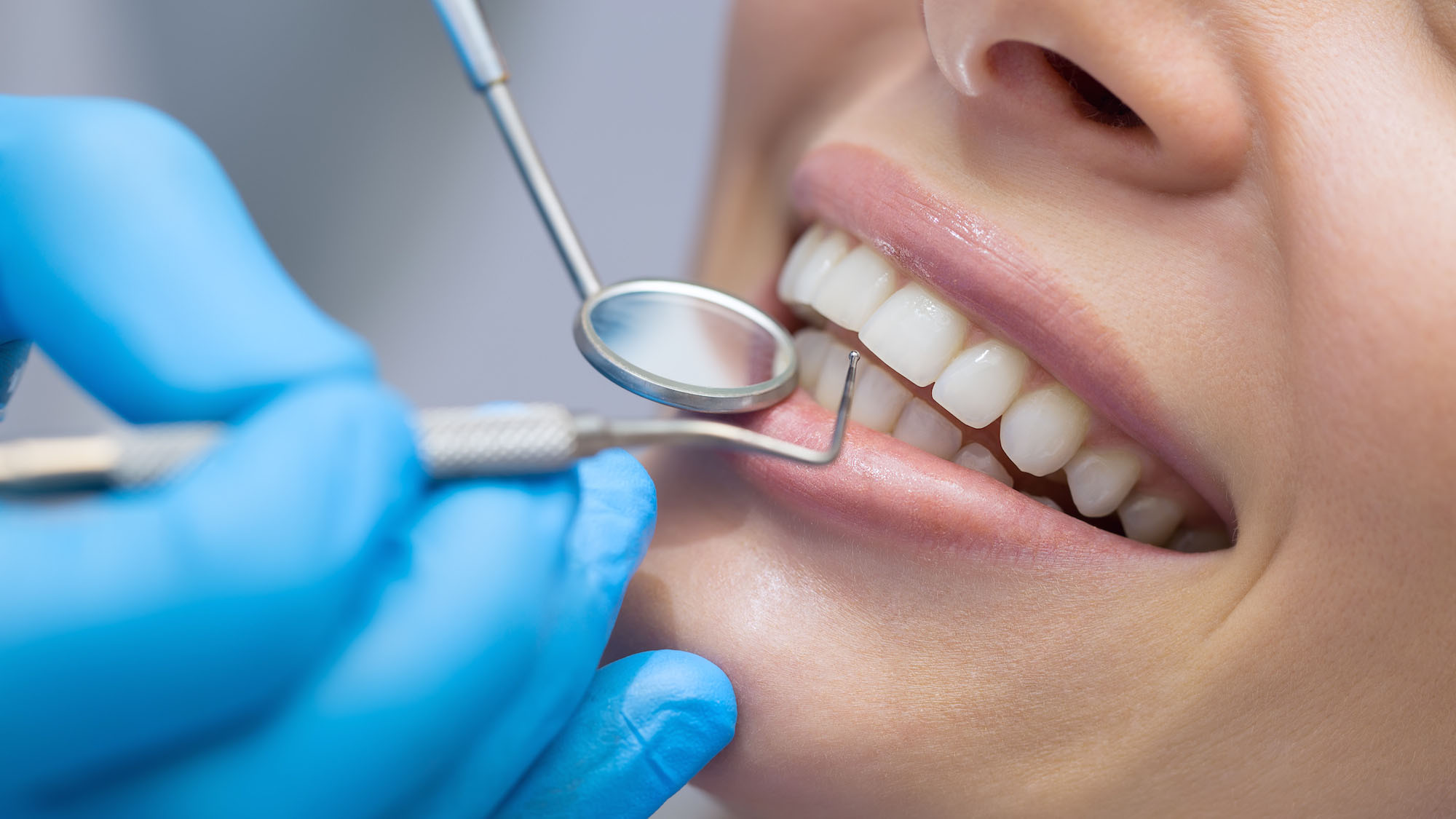
What to expect on your first visit with us:
First Visit
The dentist will then review any treatment that may be necessary for you, explain the procedures, and review the steps and appointments needed. You may be given several options for treatment. The treatment coordinator will meet with you to discuss these findings and will go over the pros and cons of the various choices so that you can make an educated decision about your treatment. Any questions or concerns you have can be addressed with the doctor and the treatment coordinator to ensure you are making the decision that best suits your needs.
Adult Hygiene
When you see one of our registered dental hygienists at Lindsay Family Dentistry you will receive more than “just a cleaning.” You are being seen a by a qualified dental professional that will do a complete examination of the soft and hard tissues of the oral cavity, take digital xrays as necessary and do a comprehensive screening for gingivitis, periodontal disease as well as oral cancer. They remove plaque and tartar from your teeth and below the gumline, as well as apply cavity preventive agents such as fluoride. Not only are they focused on the beauty of your smile, they’re also concerned about your health. A review of your medical history can help them stay informed of your overall health, any medications and any illnesses that may impact your dental health. All of the hygienists at Lindsay Family Dentistry demonstrate a sincere desire to ensure each client experiences the most relaxed dental care. As a practice, we are true believers that preventative care and education are the keys to optimal oral health. We work with each client on a one-on-one basis to develop a customized and effective homecare routine based on their individual needs. How often you need a professional cleaning depends on how well you brush at home and on how susceptible you are to build up. We pride ourselves in providing the care you need to keep your smile healthy.
Children’s Program
At Lindsay Family Dentistry our dental hygienist’s and level two dental assistants provide high quality examinations and cleanings for young children and teenagers. Our dental professionals work one-on-one with children from their first visit at the dental office to ensure that they experience a fun, relaxed and educational appointment. The children’s program involves a comprehensive examination of your child’s oral health, removal of plaque and tartar, nutrition guidelines, preventive agents and a hands-on demonstration to ensure proper homecare between dental appointments. At Lindsay Family Dentistry our main goal is to prevent any oral health problems that children may encounter during their adolescent years. Our dental professionals work together with parents and children to ensure proper maintenance visits and homecare routines that will help children to have a healthy and happy smile that will last them a lifetime.
Oral Hygiene Instruction Program
Our Oral Hygiene Instruction Program is a comprehensive look into targeting the bacterial toxins that are responsible for gingivitis and periodontal disease. Patients will be educated on current disease theory and the contributing factors that can lead to gingivitis and periodontitis. By using various visual aids to assist in learning and understanding, we take a hands on approach to teaching patients how to implement safe and effective treatment to specifically target inflammation. With a strong focus on prevention, together we can help stop the disease process from worsening.
Restorative – Composite Fillings
A composite (tooth colored) filling is used to repair a tooth that is affected by decay, cracks, fractures, etc. The decayed or affected portion of the tooth will be removed and then filled with a composite filling. These fillings can also be used to close  spaces between teeth and fix chipped or worn teeth. There are many types of filling materials available, each with their own advantages and disadvantages. You and your dentist can discuss the best options for restoring your teeth. Composite fillings, along with silver amalgam fillings, are the most widely used today. Because composite fillings are tooth colored, they can be closely matched to the color of existing teeth, and are more aesthetically suited for use in front teeth or the more visible areas of the teeth. As with most dental restorations, composite fillings are not permanent and may someday have to be replaced. They are very durable, and will last many years, giving you a long lasting, beautiful smile.
spaces between teeth and fix chipped or worn teeth. There are many types of filling materials available, each with their own advantages and disadvantages. You and your dentist can discuss the best options for restoring your teeth. Composite fillings, along with silver amalgam fillings, are the most widely used today. Because composite fillings are tooth colored, they can be closely matched to the color of existing teeth, and are more aesthetically suited for use in front teeth or the more visible areas of the teeth. As with most dental restorations, composite fillings are not permanent and may someday have to be replaced. They are very durable, and will last many years, giving you a long lasting, beautiful smile.
Root Canal Therapy
Root canal therapy is needed when the nerve of a tooth is affected by decay or infection. This happens when decay has reached the tooth pulp (the living tissue inside the tooth), an infection or abscess has developed inside the tooth or at the root tip, or injury or trauma to the tooth has occurred. In order to save the tooth, the pulp (the living tissue inside the tooth), nerves, bacteria, and any decay are removed and the resulting space is filled with special, medicated, dental materials, which restore the tooth to its full function. Signs and symptoms for possible root canal therapy are an abscess (or pimple) on the gums, sensitivity to hot and cold, severe toothache pain, swelling and/or tenderness, and sometimes no symptoms are present at all.
Sports Guards
The importance of an athlete wearing a sports mouthpiece when participating in almost any type of sport cannot be over emphasized. Sport mouth guards are resilient plastic appliances that have been designed in to cover over and encase an  athlete’s teeth and the gums and bone that support them. When a guard is worn, it helps to provide protection for the hard (teeth and jaw) and soft (lips, cheeks, gums) tissues of the mouth by way of absorbing and redistributing the forces generated by traumatic blows. Athletic mouth guards can also help prevent tooth damage that might be caused by tooth to tooth contact. Hard collisions or blows directed to the head or mouth can result in a motion where the athlete’s jaws come together forcibly. The resiliency of that portion of a mouth guard that covers over the chewing surface of the wear’s teeth can help to cushion the effects of this reaction and therefore help to prevent tooth damage.
athlete’s teeth and the gums and bone that support them. When a guard is worn, it helps to provide protection for the hard (teeth and jaw) and soft (lips, cheeks, gums) tissues of the mouth by way of absorbing and redistributing the forces generated by traumatic blows. Athletic mouth guards can also help prevent tooth damage that might be caused by tooth to tooth contact. Hard collisions or blows directed to the head or mouth can result in a motion where the athlete’s jaws come together forcibly. The resiliency of that portion of a mouth guard that covers over the chewing surface of the wear’s teeth can help to cushion the effects of this reaction and therefore help to prevent tooth damage.
Night Guards
Bruxism is the clenching together of both the upper and lower teeth. Clenching can cause pressure on the muscles, tissues, and other surrounding structures of the jaw, and can cause jaw joint disorders, headaches, neck pain, jaw pain, ear pain, tense muscles, and excessive wear on the teeth. Collectively, these symptoms are referred to as “TMJ” problems (temper mandibular  joint). Since most of the damage typically caused by bruxism is during sleep, a night guard can usually be made to stop further damage. A night guard is custom made to fit over the lower teeth. With the night guard in place, the patient can’t grind their teeth together and cause further damage. The night guard has three purposes. The first purpose is to simply put something in between your two sets of teeth, top and bottom, that’s softer than your tooth enamel. The plastic that a night guard is made out of, even though it feels hard, is much less dense than your tooth, and so if somethings going to wear, the plastic will wear. The second thing the night guard does is because it has some thickness to it, it gives the muscle a different position to rest in, and to function in. Striated muscles, if you stretch them a little bit, if you extend them, and then contract them, its therapeutic for the muscle. It’s the same thing a runner would do when they’re stretching their legs. The third thing the night guard does is gives your jaw support and yet freedom of function. The purpose of a custom made night guard is that it can be shaped to fit the patient’s bite exactly. When you bite down you’ll have full, even support.
joint). Since most of the damage typically caused by bruxism is during sleep, a night guard can usually be made to stop further damage. A night guard is custom made to fit over the lower teeth. With the night guard in place, the patient can’t grind their teeth together and cause further damage. The night guard has three purposes. The first purpose is to simply put something in between your two sets of teeth, top and bottom, that’s softer than your tooth enamel. The plastic that a night guard is made out of, even though it feels hard, is much less dense than your tooth, and so if somethings going to wear, the plastic will wear. The second thing the night guard does is because it has some thickness to it, it gives the muscle a different position to rest in, and to function in. Striated muscles, if you stretch them a little bit, if you extend them, and then contract them, its therapeutic for the muscle. It’s the same thing a runner would do when they’re stretching their legs. The third thing the night guard does is gives your jaw support and yet freedom of function. The purpose of a custom made night guard is that it can be shaped to fit the patient’s bite exactly. When you bite down you’ll have full, even support.
Cosmetic Dentistry
Crowns:
A crown (or cap) is a covering that encases the entire tooth surface restoring it to its original shape and size. A crown protects and strengthens tooth structure that cannot be restored with fillings or other types of restorations. There are many reasons for placing a crown such as, broken or fractured teeth, cosmetic enhancement, decay, fractured or large fillings, and for teeth that have had a root canal. Although there are several types of crowns, porcelain (tooth coloured crowns) are the most popular. They are highly durable and will last many years, but like most dental restorations, they may eventually need to be replaced. Porcelain crowns are made to match the shape, size, and color of your teeth giving you a natural, long-lasting beautiful smile.
Bridges:
A dental bridge is a fixed (non-removable) appliance and is an excellent way to replace missing teeth. There are several types of bridges. You and your dentist will discuss the best options for your particular case. The “traditional bridge” is the most popular type and is usually made of porcelain fused to metal. This type of bridge consists of two crowns that go over two anchoring teeth (abutment teeth) and are attached to pontics (artificial teeth), filling the gap created by one or more missing teeth. Dental bridges are highly durable and will last many years, however they may need replacement or need to be re-cemented due to normal wear. Reasons for a fixed bridge include: filling the space of missing teeth, maintaining facial shape, preventing remaining teeth from drifting out of position, restoring chewing and speaking ability, restoring your smile, and to upgrade from a removable partial denture to a permanent dental appliance. Having a root canal done on a tooth is the treatment of choice to save a tooth that otherwise would die and have to be removed. Many patients believe that removing a tooth that has problems is the solution, but what is not realized is that extracting (pulling) a tooth will ultimately be more costly and cause significant problems for adjacent teeth. Root canal treatment is highly successful and usually lasts a lifetime, although on occasion, a tooth will have to be retreated due to new infections.
Teeth Whitening:
Take home whitening is a comfortable and convenient way to esthetically improve your smile. Once you have had a consultation with one of our dentists to ensure you are a candidate for whitening, we will then take custom impressions and fabricate a whitening tray just for you.
Take home whitening has been proven to be safe and effective. The active ingredient in the whitening gel is carbamide peroxide. This ingredient has been used in many clinical trials to ensure low risk to the patient and high results.
Once you have decided to whiten your teeth, the gel is placed inside your custom fitted trays. You will then wear the trays for the allotted time. As you are wearing these trays the gel quickly dissolves, oxygen then enters your enamel and the inside portion of your teeth (dentin) begins to lighten.
After a few days your teeth will noticeably begin to “whiten”, you will continue to wear your trays with the whitening gel for a period of two weeks. Once you have reached your optimum shade there is no need to continue.
Touch up for whitening depends on your daily oral health care schedule. Drinking tea, red wine or eating blueberries will decrease the timeline for the whitening to maintain its shade level. Smoking will also reduce the timeline for your maximum shade and you may find touch ups are required more often than someone who does not do any of the above.
*Results may vary, please ask us if you have any questions or concerns prior to proceeding with whitening.
Denture Services
Denture services provided include:
- Complimentary evaluation and consultation
- Fully customized complete and partial dentures
- Most relines and repairs done same-day on premises
- Permanent soft relines
- Protective sports mouth guards
- Snoring appliances
- Denture rejuvenation services
Dental Implants
What is a Dental Implant?
Our teeth are anchored by a deep extension of bone and tissue known as the “root” of the tooth. When we lose a tooth due to trauma or extensive decay, we also lose this root section. Dental implants correct this damage via the insertion of a tiny man-made titanium screw. Once the jawbone fuses with this screw, a replacement tooth can be anchored to it. This new tooth will look, feel, and function much like the natural tooth that preceded it.
Better still, there’s no limit on how many dental implants a patient can have. If someone has lost all of their natural teeth in an accident, for example, they can all be replaced. In addition to having aesthetic benefits, dental implants can preserve the shape of the face and prevent jaw issues. They also help to preserve the patient’s remaining natural teeth by providing support for them.
What to Expect During Dental Implant Surgery
Though having a dental implant placed sounds like a major procedure, in reality, most patients report experiencing very little discomfort during the process. Because titanium screws are so strong, we only need to insert one small screw per tooth; this does not usually create a great deal of swelling or pain. Likewise, we use anesthesia and patient sedation to make sure all of our patients remain completely comfortable.
The implant procedure varies somewhat from person to person (depending on the condition of the patient’s jawbone and other factors), but implant surgery usually complete within 3-7 days. Once the screw has bonded with the bone and the surrounding tissues have healed sufficiently, your permanent tooth will be placed. You may also be given a temporary prosthetic tooth to wear while the screw is bonding with the bone.
In terms of cost, it’s impossible to give a realistic estimate without an in-person consultation. Dr. Ullah will need to examine your mouth in order to determine how many implants you need and whether or not any additional procedures will have to be performed to ensure the health of your jaw and surrounding teeth. However, it’s important to note that dental insurance will usually cover a substantial portion of the cost of dental implants. Check your specific insurance plan in order to verify how much of the procedure will be covered.
What to Expect After Dental Implant Surgery
Dental implants usually completely heal within 1-2 weeks. During this time, you may experience some mild pain and discomfort while chewing, so it’s a good idea to stock up on soft foods before having dental implants placed.
With proper care, your dental implants should last as long as a natural tooth would. In some cases, they may last even longer, as they are not prone to decay in the same way that natural teeth are. Dental implants have been shown to last for several decades in the absence of additional trauma to the mouth.
Most patients experience a far higher degree of satisfaction with dental implants than they do with dentures—Hence why this procedure has become so popular! Implants are more comfortable to use and more convenient.
Dentistry Asleep
What is Dentistry Asleep®?
Dentistry Asleep® describes a variety of special techniques that allow you to receive treatment in comfort by promoting a peaceful state of relaxation or sleep.
Many people, both adults and children are not comfortable having dental treatment completed with local anesthesia alone.
In fact, surveys done in Ontario indicate that if given the choice, most people would prefer to have an alternative to “just freezing” to be more comfortable during extensive dental procedures. Many patients who delay getting the necessary treatment do so because they are unaware of the option to sleep through it all!
As a Certified Specialist in Dental Anesthesia I can offer you a full range of sedation techniques from mild sedation, such as nitrous oxide (laughing gas), to moderate sedation with intravenous sedation and finally completely sleep while undergoing any dental procedure…even routine oral hygiene.
Being asleep for dental treatment in my office is different than a hospital setting general anesthesia. Generally I use a few medications at lower dosages making it a milder alternative to traditional hospital based general anaesthesia.
These techniques and special medications promote light or deep sedation, or light levels of general anesthesia, and thereby eliminate the pain and stress that make many people anxious about dental treatment. They also allow you to receive multiple procedures in a single visit. Dentistry Asleep® is unlike hospital general anaesthesia in that it is lighter and less stressful on your body.
Can my child benefit from Dentistry Asleep®?
If your child requires extensive treatment, Dentistry Asleep® can allow more treatment to be done in one session. This means fewer visits to the dentist.
If your child is frightened, or has difficulty at the dentist, Dentistry Asleep® can help them receive quality dental care while avoiding the sensations and discomfort that contribute to anxiety and stress.
Is Dentistry Asleep® safe?
This is a common question, and the answer is that Dentistry Asleep® is exceptionally safe. The rigorous controls and precautions that we maintain make its safety similar to that of local anaesthesia (freezing) alone. In fact the safety of Dentistry Asleep® is comparable to that of such common activities as automobile or commercial air travel.
Who can benefit from Dentistry Asleep®?
If you’ re a busy patient, Dentistry Asleep® provides the benefit of completing more procedures in each session. This means that extensive treatment can be completed with fewer visits.
If you feel anxious about dental visits, or have a gag reflex during treatment, Dentistry Asleep® can help by letting you avoid the discomfort that contributes to anxiety and stress.
If you have certain medical conditions—such as allergies, asthma, diabetes, or hypertension—the stress reduction and close patient monitoring of Dentistry Asleep® can actually make treatment safer.
Nervous or Anxious? Try Sedation Dentistry
Sleep dentistry and Sedation
Our dental team is proud to offer sedation dentistry. Our team understands the importance of maintaining oral health and wellness. Sadly many patients fear dentistry to such a degree that it prevents them from ever seeing a dentist. Fortunately we have many options available to alleviate the fear associated with dental work. Whether it is “laughing gas” to take the edge off a patient who has some slight jitters or “sleep dentistry” for the very fearful, we have the solutions for you.
Some of the patients who could benefit from our various sedation options are:
- Children who are fearful or very young
- Patients with gag reflex
- Adults who fear all of some aspects of dentistry
- Fear of Dental Freezing
Oral Sedation
Oral sedation is a great option for the apprehensive patient who could benefit from the relaxing, sedative effect of Valium prescribed at the ideal dosage to induce sleep and comfort. This form of sedation assists in alleviating anxiety while providing conscious relaxation throughout your dental appointment.
Porcelain Crown & Bridges
Porcelain Crowns
A porcelain crown protects and strengthens the entire surface of the tooth, restoring it to its original shape and size. It may also be used as a solution when the surface of the tooth is a problem but the root is still healthy. We may recommend a crown if your tooth is fractured, has an extremely large filling that is broken down, is severely damaged by cavities or has had root canal treatment leaving the tooth brittle and susceptible to fracture.
Porcelain crowns not only strengthen and protect the remaining tooth structure; they also help keep your jaw and bite aligned. Older crowns do not last forever and start to leak over time, leading to cavities underneath the crown. Today’s technology is so advanced that you may want to consider replacing your old, leaking crowns with new natural looking ones. We carefully match the colour of your porcelain crowns so that they blend with your natural teeth.
Porcelain crowns not only strengthen and protect the remaining tooth structure; they also help keep your jaw and bite aligned for proper function. Older crowns start to leak over time, leading to cavities underneath the crown.
A crown procedure usually involves two short visits. During your first visit, we will prepare the tooth by removing any decay and building a healthy foundation to support the crown. Next, we will take impressions from which the crown is made. A temporary crown is placed until the permanent one is ready.
Within two weeks, you will return to have your temporary crown removed and your new crown placed. The porcelain crown will protect your tooth however as with all procedures, proper home care and regular dental visits will help prolong the life of your new crown.
Porcelain Bridges
You will be excited to know that porcelain bridges are an excellent alternative to replace missing teeth and may be able to replace your old partial denture – eliminating the need to remove an appliance every night. Made to match the shape, size, and color or your teeth, these porcelain restorations will give you a long-lasting beautiful smile.
A porcelain bridge is a custom device that is bonded to neighbouring teeth to replace one or more missing teeth. When a lost tooth is replaced with a bridge, the teeth on either side of the missing one are prepared as crowns to hold the artificial tooth in place. Porcelain material is the most popular choice because it is durable and maintains the natural look of your smile.
A bridge procedure usually requires two appointments. The first appointment is for the preparation and impression of the teeth and the next appointment within two weeks for permanent bridge placement. The porcelain bridge will protect your teeth from problems stemming from missing teeth. As with all procedures, proper home care and regular dental visits will help prolong the life of your new bridge.
Teeth Whitening
Tooth whitening (or bleaching) is a simple, non-invasive dental treatment used to change the color of natural tooth enamel and is an ideal way to enhance the beauty of your smile.
Because having whiter teeth has now become the number one aesthetic concern of most patients, there are a number of ways to whiten teeth. The most popular method is using a home tooth whitening system that will whiten teeth dramatically. Since tooth whitening only works on natural tooth enamel, it is important to evaluate replacement of any old fillings, crowns, etc. Replacement of any restorations will be done after bleaching so they will match the newly bleached teeth.
Tooth whitening is not permanent. A touch-up maybe needed every several years, and more often if you smoke, drink coffee, tea, or wine.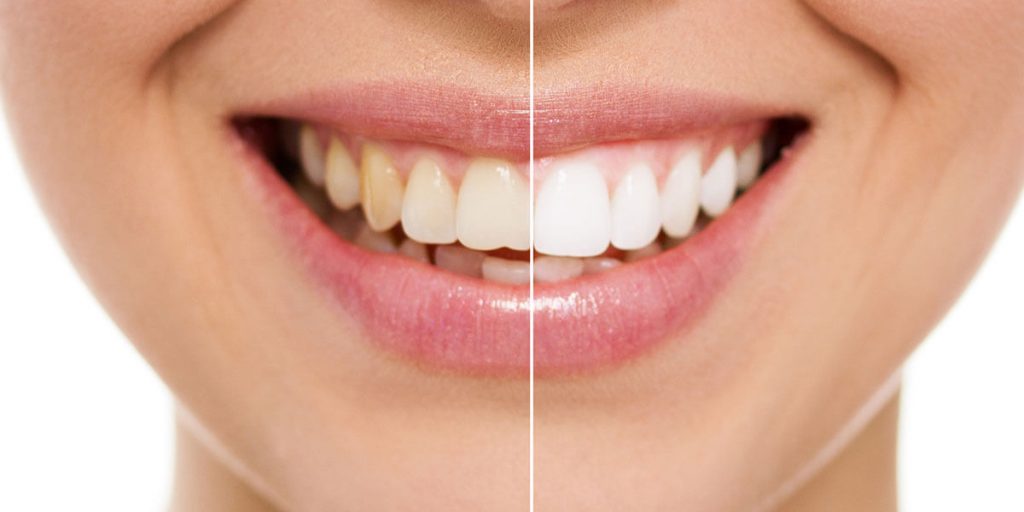
Reasons for tooth whitening:
-
Fluorosis (excessive fluoridation during tooth development).
-
Normal wear of outer tooth layer.
-
Stained teeth due to medications (tetracycline, etc.).
-
Yellow, brown stained teeth.
What does tooth whitening involve?
This type of tooth whitening usually requires two visits. At the first appointment, impressions (molds) will be made of your teeth to fabricate custom, clear plastic, trays.
At your second appointment, you will try on the trays for proper fit, and adjustments will be made if necessary. The trays are worn with special whitening solution either twice a day for 30 minutes or overnight for a couple of weeks depending on the degree of staining and desired level of whitening. It is normal to experience tooth sensitivity during the time you are whitening your teeth, but it will subside shortly after you have stopped bleaching.
You will receive care instructions for your teeth and trays, and be encouraged to visit your dentist regularly to help maintain a beautiful, healthy, white smile.
Invisalign – Alternative to Braces
We are happy to offer our patients Invisalign®, which is basically a clear alternative to braces. Using new 3D computer imaging technology, we can offer you the straightest way to a great smile.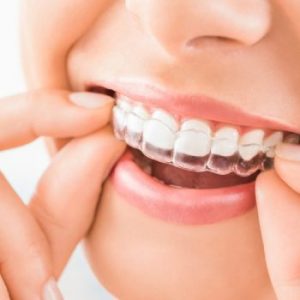
Invisalign® uses a series of clear plastic, removable and comfortable aligners that gently and gradually straighten your teeth. Trays are worn daily, removing them only to eat, brush and floss. Approximately every two weeks, you will advance to the next set of aligners. Treatment times vary depending on your custom treatment plan.
Invisalign® is a convenient and easy way to a beautiful smile, please call our office to learn more.
Digital Radiography
Digital radiographs enable the dentist or the dental hygienist to look inside the tooth. The x-ray image immediately appears on a computer screen to enable both the patient and the dentist to review immediately. These images can be enlarged to increase visibility of problem areas.
The digital radiographic technology is significantly safer to you, the patient, and to the environment. The old method of x-rays technology emitted up to 90% more radiation. To put this in perspective for you: six (6) digital X-ray images of teeth can be taken for the same amount of radiation exposure it takes to process one (1) piece of conventional dental X-ray film.
Digital X-rays do not require harmful toxic chemicals for film development and eliminate the use of plastic film packets. This is a tremendous environmental benefit. This means the employees, the patients and the environment are not exposed to harmful chemicals and reduction in the amount of disposables.
- Reduced Radiation: digital X-rays emit up to 90% less radiation
- Environmental benefits: no toxic chemicals to expose employees to or to dispose of
- Immediate availability: images are instantly available to discuss with patient or electronically share with other specialists or insurance companies
Dentures – Full and Partials
A denture is a removable dental appliance that serves as a replacement for missing teeth and surrounding tissue. They are made to closely resemble your natural teeth and may even enhance your smile.
There are two types of dentures: complete and partial.
- Complete dentures are used when all of the teeth in either the upper or lower arch are missing.
- Partial dentures are used when some natural teeth remain. They not only fill in the spaces created by missing teeth, but also prevent other teeth from shifting.
Dentures are very durable appliances and will last many years, but may have to be remade, repaired or readjusted due to normal wear.
Reasons for dentures:
• Complete Denture – loss of all teeth in an arch
• Partial Denture – loss of several teeth in an arch
• Enhancing smile and facial tissues
• Improving chewing, speech, and digestion
What does getting dentures involve?
The process of getting dentures requires several appointments, usually over several weeks. Highly accurate impressions (molds) and measurements are taken and used to create your custom denture. Several “try-in” appointments may be necessary to ensure proper shape, color and fit. At the final appointment, Dr. Ullah will precisely adjust and place the completed denture, ensuring a natural and comfortable fit.
It is normal to experience increased saliva flow, some soreness and possible speech and chewing difficulty, however this will subside as your muscles and tissues get used to the new dentures.
You will be given care instructions for your new dentures. Proper cleaning of your new dental appliance, good oral hygiene and regular dental visits will aid in the life of your new dentures.
